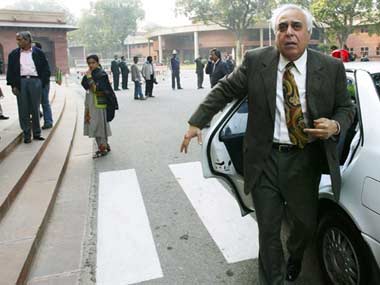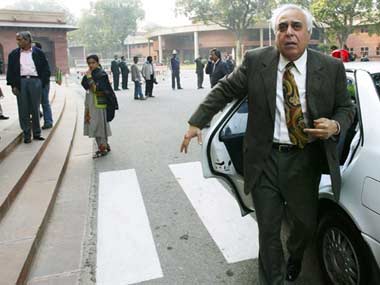Telecommunications minister Kapil Sibal said revenue generation would play a secondary role in the New Telecom Policy 2011.
The objective of the policy is to provide secure reliable, affordable high-quality telecom services anytime anywhere, he said.
Objectives/highlights of policy include:
*There will be a one-nation, one-license policy.
*Policy will delink spectrum allocation and issuing of licenses.
*Free roaming under telecom policy. Roaming charges proposed to be removed.
* Full mobile number portability.
*Availability of spectrum to increase.
*BSNL, MTNL to play continued role in penetration.
*Sharing of networks to be permitted.
*Aims to have 100 percent tele-density by 2020 and 200million broadband connections by 2020.
*Licenses to separate communication network service operator and service delivery operators. Service operator to be allowed to deliver any service he wants. The policy will later seek to propose resale of services at the retail level.
*Market-based pricing of spectrum to be allowed.
[caption id=“attachment_104118” align=“alignleft” width=“380” caption=“Kapil Sibal in this file photo. AFP”]
 [/caption]
[/caption]
*Periodic audit of spectrum utilisation. New spectrum capacity to be introduced every five years.
*The tenure of mobile permits set to be halved to 10 years when they come up for renewal
*Will have 300 megahertz of spectrum by 2017, aiming for 500 megahertz to become available by 2020.
*New Spectrum Act will be introduced to oversee licensing, withdrawal, pricing and exemptions to spectrum-sharing etc.
*Separate Telecom Finance Corporation proposed to be set up.
* Will work on giving infrastructure status to telecom sector.
*To include an exit policy for telecom players.
*The policy will focus on convergence of TV, Internet and Internet services.
*Broadband download speed will be revised to 512 kbps vs 216 kbps.
*The policy aims to make India a hub for telecom equipment manufacturing and will have provisions to create a corpus for R&D, Intellectual Property Rights and entrepreneurship.
*To review TRAI and Telegraph Act.
*Aim is to have the policy take effect by December 2011.
Reactions:
Jaideep Ghosh of KPMG said the policy was a step in the right direction, although the details had to be looked at in detail. Bhavesh Gandhi of IIFL said the removal of roaming charges was expected, and was therefore not immediately damaging to existing telecom players.
He also said companies could hike tariffs to compensate for the loss of roaming charges, which account for 5-6 percent of revenues.
PricewaterCoopers says the policy is a “win-win” situation. It said granting the telecom sector infrastructure status was important because it would encourage companies to invest in telecom companies. That, in turn, would help the government in terms of increased revenues.
Background:
The Draft New Telecom Policy ( D-NTP 2011) had been expected to give direction to aspects like licensing, spectrum, M&A regulations and spectrum sharing and trading.
The existing regulatory framework for the Telecom industry is a combination of NTP-99 and its subsequent amendments and notifications. These amendments were said to be arbitrary and not conducive for having a coherent regulatory policy. The D-NTP 2011 therefore sought to redress these shortcomings.
)